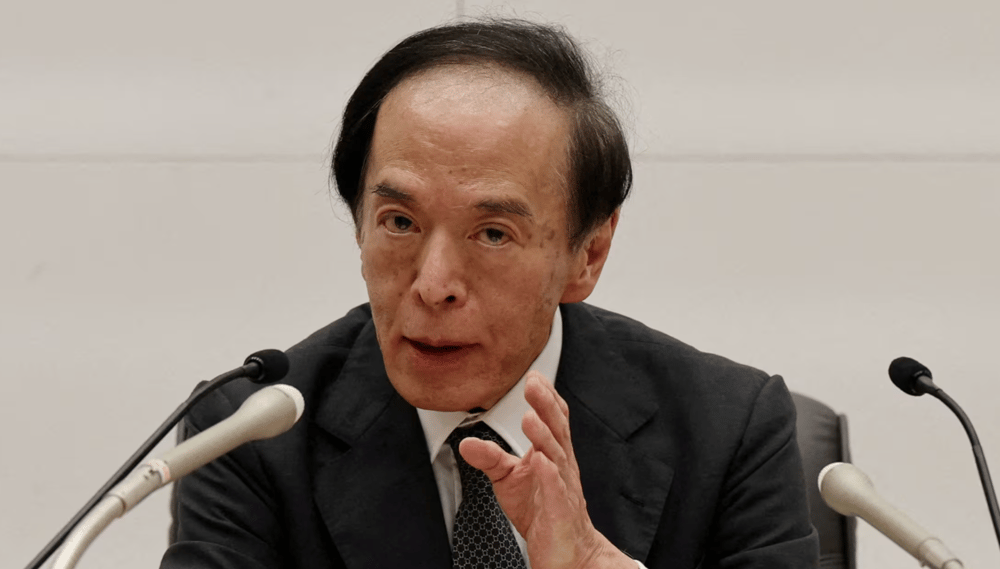Bank of Japan Holds Rates, Signals Slower Balance Sheet Reduction Amid Global Uncertainty
The Bank of Japan (BOJ) maintained its benchmark interest rate unchanged on Tuesday and announced a slower pace for reducing its massive balance sheet in 2025. This decision underscores the central bank’s cautious approach in unwinding its ultra-loose monetary policy, which has remained in place for over a decade.
The BOJ’s restraint comes amid rising global headwinds — including escalating Middle East tensions and renewed U.S. tariffs — that threaten to destabilize already fragile financial conditions. These external pressures are complicating Japan’s efforts to normalize policy after years of aggressive monetary stimulus aimed at combating deflation and sluggish growth.
Balancing Domestic Fragility with Global Risk: Inside the BOJ’s Policy Pivot
Japan’s central bank has only recently exited from negative interest rate policy (NIRP), marking a historic shift from its long-standing unconventional stance. However, with Japanese government bond (JGB) yields still near multi-decade lows and inflation only modestly above the 2% target, policymakers remain hesitant to tighten further.
The BOJ’s decision to slow its quantitative tightening (QT) efforts—effectively reducing the pace at which it sells assets purchased under previous stimulus programs—reflects concern over market volatility. Japan’s balance sheet has ballooned to nearly JPY 750 trillion, roughly matching the size of the national GDP, a level far exceeding that of other major central banks relative to economic output.

Key Developments at a Glance
🏦 BOJ keeps interest rate steady after March hike ended negative rate policy
📉 Plans to slow pace of balance sheet reduction starting in 2025
🌍 Cites geopolitical instability in the Middle East and rising U.S. trade tensions
📊 Balance sheet remains close to JPY 750 trillion (~USD 4.8 trillion)
💡 Inflation trends remain fragile, with core CPI near 2% target
Market Reaction: Yen Slips, JGB Yields Hold; Analysts Urge Policy Patience
Following the BOJ’s announcement, the Japanese yen (JPY) weakened modestly against the U.S. dollar (USD), reflecting market perception that the BOJ will remain dovish relative to other central banks, particularly the Federal Reserve (Fed). The USD/JPY pair rose above 157, as investors recalibrated expectations for further policy tightening in Japan.
Equity markets showed limited immediate reaction, while yields on 10-year JGBs held steady around 0.95%, suggesting that bond investors had largely priced in a cautious BOJ stance. Economists at Nomura and Mizuho highlighted the central bank’s sensitivity to external shocks and suggested any further rate hikes may be deferred well into 2025.

Policy Impact: Five Strategic Takeaways
Slower Quantitative Tightening: The BOJ will taper bond sales more gradually than expected, prioritizing market stability.
FX Sensitivity: A dovish policy tone may increase downward pressure on the yen, especially if the Fed maintains a higher-for-longer stance.
Geopolitical Uncertainty: Rising instability in the Middle East adds to risk premiums in global markets, limiting BOJ’s maneuvering space.
Trade Pressures: U.S. tariffs on Asian imports complicate Japan’s export outlook, reinforcing caution on rate moves.
Divergence Risk: Japan’s slower normalization contrasts with more aggressive tightening cycles by other G7 central banks.
BOJ Embraces Caution Amid Complex Global Landscape
The Bank of Japan’s decision to hold rates and delay balance sheet normalization underscores the institution’s preference for policy stability over aggressive tightening. With Japan’s economy still recovering and external risks rising, the central bank is opting to proceed slowly in dismantling its decade-long experiment with ultra-accommodative monetary tools.
While this approach may preserve domestic financial stability, it also widens the monetary policy divergence between Japan and its peers, potentially pressuring the yen and complicating Japan’s inflation trajectory. For now, the BOJ appears content to watch, wait, and adjust gradually in an increasingly uncertain world.















Comments
A bold move that reflects shifting priorities in the tech sector toward scalable automation solutions
The BOJ's careful strategy reflects the delicate balance between recovery and stability in Japan's economy.